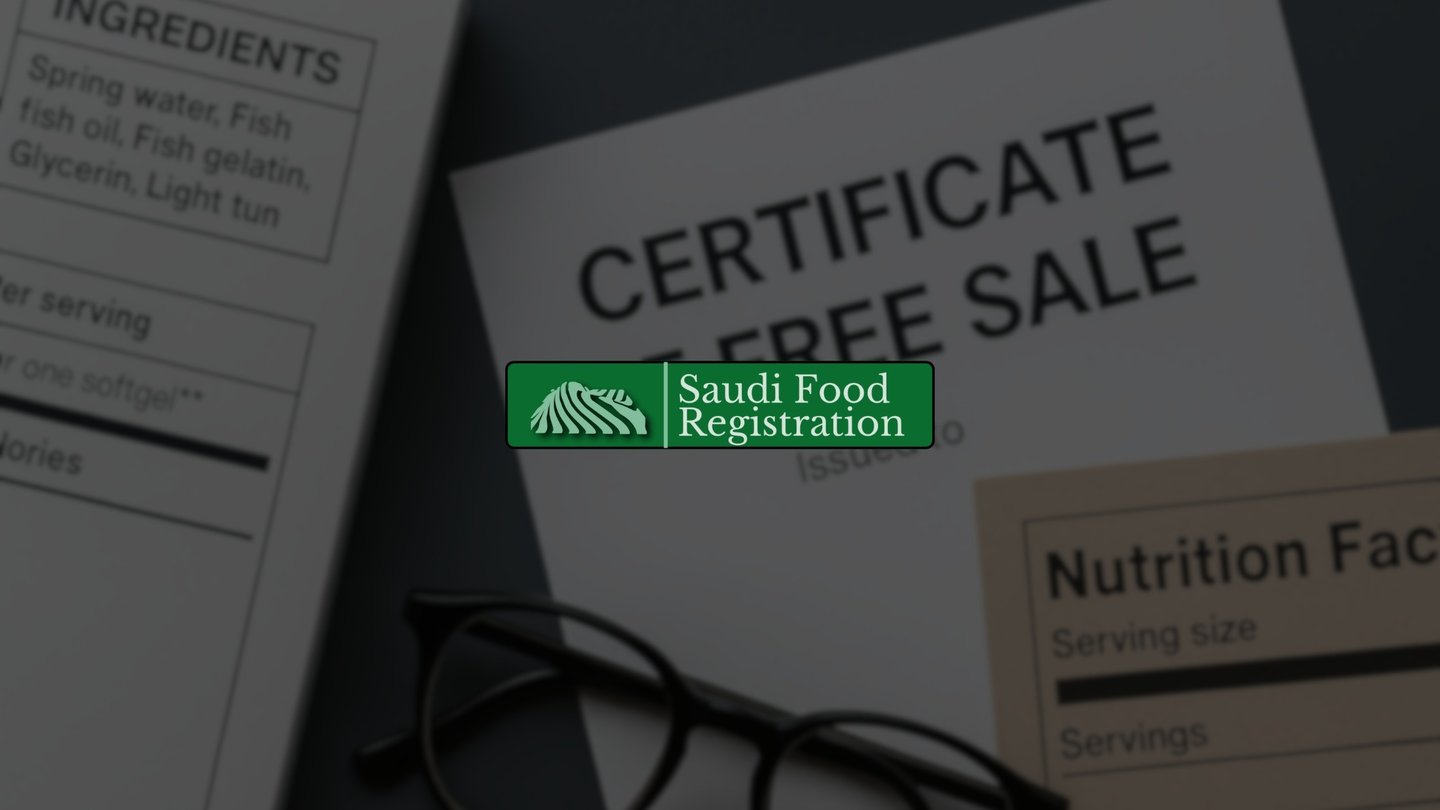SFDA CFS: Certificate of Free Sale Approval Full Guide
Get your SFDA CFS approved fast. Learn who issues it, required wording, and legalization steps to avoid rejections and speed up registration.
10/28/20253 min read


Certificate of Free Sale (CFS) for SFDA:
Issuing Authority, Legalization & Exact Wording That Avoids Rejection
Before your product can reach Saudi shelves, the Saudi Food and Drug Authority (SFDA) requires proof that it is legally sold and approved in its country of origin.
That proof comes in the form of a Certificate of Free Sale (CFS). But even when the certificate exists, many companies face delays because their document isn’t issued, worded, or legalized in the format SFDA accepts.
This guide breaks down everything you need to know to get your CFS approved on the first submission—from identifying the right issuing authority to ensuring the correct Arabic translation and legalization sequence.
What SFDA Considers a Valid Certificate of Free Sale
A CFS is an official government-issued document confirming that your product is freely sold in its manufacturing or exporting country. For SFDA, it’s a key piece of evidence in product registration, showing both legitimacy and market approval.
Recognized issuing authorities include:
The Ministry of Health or Ministry of Industry in your country
Authorized regulatory or export promotion agencies
Chambers of Commerce (in certain countries with attestation rights)
SFDA does not accept certificates issued solely by manufacturers or private entities, even if notarized.
Mandatory Details SFDA Checks in Every CFS
Your certificate may look simple, but every word matters. SFDA verification officers examine consistency across your product name, manufacturer identity, and category.
Make sure your CFS includes:
Manufacturer’s full name and address (matching dossier and label)
Exact product name(s) or family name(s)
Product category (e.g., food supplement, energy drink, infant formula)
Confirmation of free sale and market availability
Date of issue and validity period
If your certificate references a product family or category, ensure that each SKU in your submission falls under the same description.
Legalization & Translation Flow (Foreign → Saudi Arabia)
Even a perfectly issued certificate can be rejected if it’s not legalized correctly. SFDA requires all foreign-origin documents to be translated into Arabic and attested through a full chain of authorities.
Step 1: Certified Technical Translation
The translation must be carried out by a certified translator familiar with regulatory and scientific terminology. Each translation should carry the translator’s stamp and date.
Step 2: Chamber of Commerce Attestation
The issuing authority’s signature is verified by the local Chamber of Commerce. Missing this step voids later legalization stages.
Step 3: Ministry of Foreign Affairs (Home Country)
The MOFA validates that the Chamber stamp is genuine and that the signatories are authorized.
Step 4: Saudi Embassy or Consulate Legalization
The Saudi Embassy confirms the authenticity of the previous stamps and ensures that the document is acceptable for submission in Saudi Arabia.
Step 5: Saudi MOFA Final Attestation
Once in Saudi Arabia, the local MOFA provides the final seal confirming the document’s legal status.
How to Avoid SFDA Rejection Over Your CFS
Always align the Arabic translation with your original English version word-for-word.
Ensure the company name and address match across CFS, label, and dossier.
Check that stamps are original and visible—no blurred or digital reproductions.
Avoid reusing expired certificates; SFDA generally accepts CFS issued within the last six months.
Maintain uniformity in wording across all related documents (LoA, test reports, Halal certificates).
When Your Country Has No CFS Issuing Authority
If your product’s country of origin doesn’t provide a CFS, SFDA may accept an equivalent document—such as a government-issued export permit, manufacturer declaration, or Chamber-attested sale confirmation—provided it follows the same legalization steps.
How Saudi Food Registration Helps
Our team assists clients in securing SFDA-compliant Certificates of Free Sale by managing the entire process—from identifying the right issuing authority to handling Arabic translation, attestation, and embassy legalization. We ensure every document meets SFDA’s latest requirements, avoiding back-and-forth corrections and long approval delays.
Checklist for a Compliant SFDA CFS
✅ Issued by a recognized government authority
✅ Includes correct product and manufacturer information
✅ Translated and legalized through all required channels
✅ Valid and consistent with labels and dossier
Strengthen Your Dossier Further
If you want your SFDA application to pass without delays, ensure every document aligns perfectly. Strengthen your file with these related guides:
Learn how to legalize and translate SFDA Documents correctly before submission.
Understand how to Align Labels and CFS Wording to prevent mismatched claims.
How Government Liaison Services can help verify your issuing authority before submission.
Guide on SFDA health claims to see which statements get approved & how to stay compliant.
Explore our latest insights on SFDA seasonal foods and how to keep Ramadan and limited-edition products fully compliant.
Contact us or use the chatbot to verify your Certificate of Free Sale before submission and ensure it meets SFDA’s exact approval requirements.
